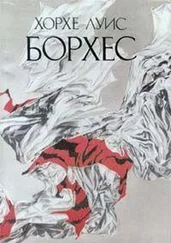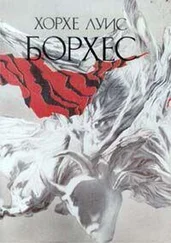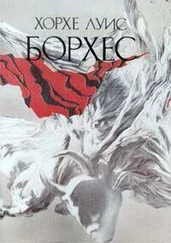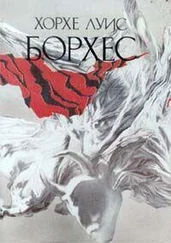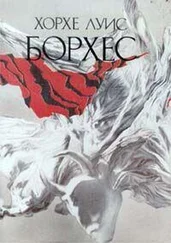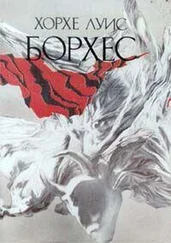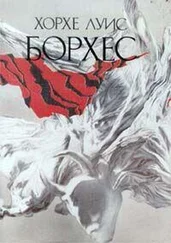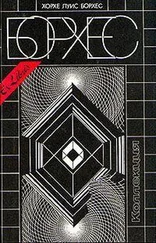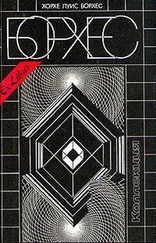Хорхе Борхес - Collected Fictions
Здесь есть возможность читать онлайн «Хорхе Борхес - Collected Fictions» весь текст электронной книги совершенно бесплатно (целиком полную версию без сокращений). В некоторых случаях можно слушать аудио, скачать через торрент в формате fb2 и присутствует краткое содержание. Год выпуска: 1999, ISBN: 1999, Издательство: Penguin (UK), Жанр: Старинная литература, на английском языке. Описание произведения, (предисловие) а так же отзывы посетителей доступны на портале библиотеки ЛибКат.
- Название:Collected Fictions
- Автор:
- Издательство:Penguin (UK)
- Жанр:
- Год:1999
- ISBN:9780140286809
- Рейтинг книги:5 / 5. Голосов: 1
-
Избранное:Добавить в избранное
- Отзывы:
-
Ваша оценка:
- 100
- 1
- 2
- 3
- 4
- 5
Collected Fictions: краткое содержание, описание и аннотация
Предлагаем к чтению аннотацию, описание, краткое содержание или предисловие (зависит от того, что написал сам автор книги «Collected Fictions»). Если вы не нашли необходимую информацию о книге — напишите в комментариях, мы постараемся отыскать её.
Collected Fictions — читать онлайн бесплатно полную книгу (весь текст) целиком
Ниже представлен текст книги, разбитый по страницам. Система сохранения места последней прочитанной страницы, позволяет с удобством читать онлайн бесплатно книгу «Collected Fictions», без необходимости каждый раз заново искать на чём Вы остановились. Поставьте закладку, и сможете в любой момент перейти на страницу, на которой закончили чтение.
Интервал:
Закладка:
He was awakened by the sun high in the sky. He examined his wounds and saw, without astonishment, that they had healed; he closed his pale eyes and slept, not out of any weakness of the flesh but out of willed determination. He knew that this temple was the place that his unconquerable plan called for; he knew that the unrelenting trees had not succeeded in strangling the ruins of another promising temple downriver—like this one, a temple to dead, incinerated gods; he knew that his immediate obligation was to sleep. About midnight he was awakened by the inconsolable cry of a bird. Prints of unshod feet, a few figs, and a jug of water told him that the men of the region had respectfully spied upon his sleep and that they sought his favor, or feared his magic. He felt the coldness of fear, and he sought out a tomblike niche in the crumbling wall, where he covered himself with unknown leaves.
The goal that led him on was not impossible, though it was clearly supernatural: He wanted to dream a man. He wanted to dream him completely, in painstaking detail, and impose him upon reality. This magical objective had come to fill his entire soul; if someone had asked him his own name, or inquired into any feature of his life till then, he would not have been able to answer. The uninhabited and crumbling temple suited him, for it was a minimum of visible world; so did the proximity of the woodcutters, for they saw to his frugal needs. The rice and fruit of their tribute were nourishment enough for his body, which was consecrated to the sole task of sleeping and dreaming.
At first, his dreams were chaotic; a little later, they became dialectical. The foreigner dreamed that he was in the center of a circular amphitheater, which was somehow the ruined temple; clouds of taciturn students completely filled the terraces of seats. The faces of those farthest away hung at many centuries' distance and at a cosmic height, yet they were absolutely clear. The man lectured on anatomy, cosmography, magic; the faces listened earnestly, intently, and attempted to respond with understanding—as though they sensed the importance of that education that would redeem one of them from his state of hollow appearance and insert him into the real world. The man, both in sleep and when awake, pondered his phantasms' answers; he did not allow himself to be taken in by impostors, and he sensed in certain perplexities a growing intelligence. He was seeking a soul worthy of taking its place in the universe.
On the ninth or tenth night, he realized (with some bitterness) that nothing could be expected from those students who passively accepted his teachings, but only from those who might occasionally, in a reasonable way, venture an objection. The first—the accepting—though worthy of affection and a degree of sympathy, would never emerge as individuals; the latter— those who sometimes questioned—had a bit more préexistence. One afternoon (afternoons now paid their tribute to sleep as well; now the man was awake no more than two or three hours around daybreak) he dismissed the vast illusory classroom once and for all and retained but a single pupil—a taciturn, sallow-skinned young man, at times intractable, with sharp features that echoed those of the man that dreamed him. The pupil was not disconcerted for long by the elimination of his classmates; after only a few of the private classes, his progress amazed his teacher. Yet disaster would not be forestalled. One day the man emerged from sleep as though from a viscous desert, looked up at the hollow light of the evening (which for a moment he confused with the light of dawn), and realized that he had not dreamed. All that night and the next day, the unbearable lucidity of insomnia harried him, like a hawk. He went off to explore the jungle, hoping to tire himself; among the hemlocks he managed no more than a few intervals of feeble sleep, fleetingly veined with the most rudimentary of visions—useless to him. He reconvened his class, but no sooner had he spoken a few brief words of exhortation than the faces blurred, twisted, and faded away. In his almost perpetual state of wakefulness, tears of anger burned the man's old eyes.
He understood that the task of molding the incoherent and dizzying stuff that dreams are made of is the most difficult work a man can undertake, even if he fathom all the enigmas of the higher and lower spheres— much more difficult than weaving a rope of sand or minting coins of the faceless wind. He understood that initial failure was inevitable. He swore to put behind him the vast hallucination that at first had drawn him off the track, and he sought another way to approach his task. Before he began, he devoted a month to recovering the strength his delirium had squandered. He abandoned all premeditation of dreaming, and almost instantly managed to sleep for a fair portion of the day. The few times he did dream during this period, he did not focus on his dreams; he would wait to take up his task again until the disk of the moon was whole. Then, that evening, he purified himself in the waters of the river, bowed down to the planetary gods, uttered those syllables of a powerful name that it is lawful to pronounce, and laid himself down to sleep. Almost immediately he dreamed a beating heart.
He dreamed the heart warm, active, secret—about the size of a closed fist, a garnet-colored thing inside the dimness of a human body that was still faceless and sexless; he dreamed it, with painstaking love, for fourteen brilliant nights. Each night he perceived it with greater clarity, greater certainty. He did not touch it; he only witnessed it, observed it, corrected it, perhaps, with his eyes. He perceived it, he lived it, from many angles, many distances. On the fourteenth night, he stroked the pulmonary artery with his forefinger, and then the entire heart, inside and out. And his inspection made him proud. He deliberately did not sleep the next night; then he took up the heart again, invoked the name of a planet, and set about dreaming another of the major organs. Before the year was out he had reached the skeleton, the eyelids. The countless hairs of the body were perhaps the most difficult task. The man had dreamed a fully fleshed man—a stripling—but this youth did not stand up or speak, nor could it open its eyes. Night after night, the man dreamed the youth asleep.
In the cosmogonies of the Gnostics, the demiurges knead up a red Adam who cannot manage to stand; as rude and inept and elementary as that Adam of dust was the Adam of dream wrought from the sorcerer's nights. One afternoon, the man almost destroyed his creation, but he could not bring himself to do it. (He'd have been better off if he had.) After making vows to all the deities of the earth and the river, he threw himself at the feet of the idol that was perhaps a tiger or perhaps a colt, and he begged for its untried aid. That evening, at sunset, the statue filled his dreams. In the dream it was alive, and trembling—yet it was not the dread-inspiring hybrid form of horse and tiger it had been. It was, instead, those two vehement creatures plus bull, and rose, and tempest, too—and all that, simultaneously. The manifold god revealed to the man that its earthly name was Fire, and that in that circular temple (and others like it) men had made sacrifices and worshiped it, and that it would magically bring to life the phantasm the man had dreamed—so fully bring him to life that every creature, save Fire itself and the man who dreamed him, would take him for a man of flesh and blood. Fire ordered the dreamer to send the youth, once instructed in the rites, to that other ruined temple whose pyramids still stood downriver, so that a voice might glorify the god in that deserted place. In the dreaming man's dream, the dreamed man awoke.
The sorcerer carried out Fire's instructions. He consecrated a period of time (which in the end encompassed two full years) to revealing to the youth the arcana of the universe and the secrets of the cult of Fire. Deep inside, it grieved the man to separate himself from his creation. Under the pretext of pedagogical necessity, he drew out the hours of sleep more every day. He also redid the right shoulder (which was perhaps defective). From time to time, he was disturbed by a sense that all this had happened before.... His days were, in general, happy; when he closed his eyes, he would think Now I will be with my son. Or, less frequently, The son I have engendered is waiting for me, and he will not exist if I do not go to him.
Читать дальшеИнтервал:
Закладка:
Похожие книги на «Collected Fictions»
Представляем Вашему вниманию похожие книги на «Collected Fictions» списком для выбора. Мы отобрали схожую по названию и смыслу литературу в надежде предоставить читателям больше вариантов отыскать новые, интересные, ещё непрочитанные произведения.
Обсуждение, отзывы о книге «Collected Fictions» и просто собственные мнения читателей. Оставьте ваши комментарии, напишите, что Вы думаете о произведении, его смысле или главных героях. Укажите что конкретно понравилось, а что нет, и почему Вы так считаете.

